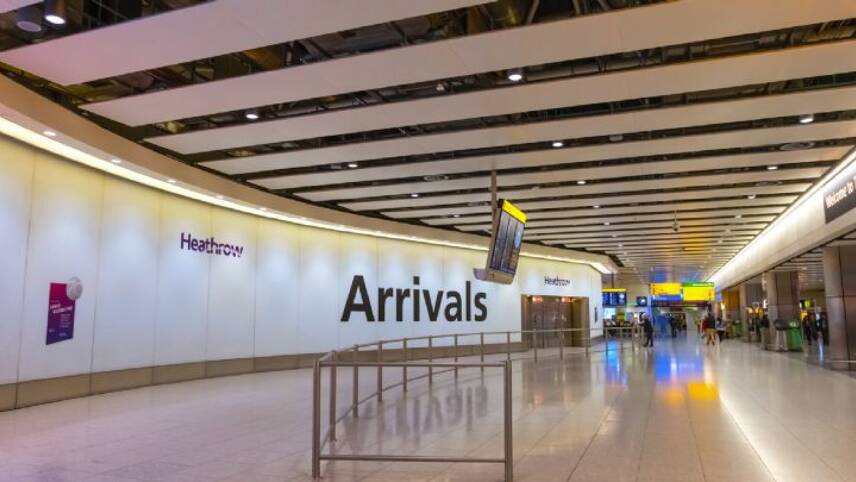Register for free and continue reading
Join our growing army of changemakers and get unlimited access to our premium content

Among the new environmental pledges is a 15% reduction in carbon emissions from flights by 2030
The Airport first unveiled its ‘Heathrow 2.0’ sustainability strategy in 2017, setting 2050 targets for zero-carbon operations and flights as well as zero-waste operations and 100% sustainable water consumption. There was also a commitment to ensure the third runway would be carbon neutral, mainly by using offsetting.
It is important to note that, in 2017, the UK had not legislated for net-zero emissions and global climate policymaking broadly framed a 2C trajectory sufficient – not the 1.5C trajectory that is now being pushed for.
And, of course, the original strategy was published pre-Covid-19. In November 2021, Heathrow stated that its passenger numbers were 60% lower than in November 2019. As such, the updated Heathrow 2.0 strategy, published today (11 February), argues that improved sustainability and business growth are possible simultaneously, badging itself as a framework for the Airport to “build back better.”.
On emissions, the headline commitment is for Heathrow Airport never to surpass the net emissions levels it recorded in 2019, even if the third runway is built.
There is a new commitment to halve ‘on-the-ground’ emissions from buildings and ground operations by the 2030s, against a 2019 baseline. To reach this ambition, plans will be drawn up to improve the energy efficiency of buildings, procure more renewable energy and switch to low-carbon fleet vehicles. There is a specific target to reduce vehicle emissions by 87% by 2030, against a 2019 baseline.
For emissions from flights – often the sticking point for green groups in airports’ sustainability plans – Heathrow has promised a 15% reduction in carbon in absolute terms by 2030, against a 2030 baseline. Heathrow’s documents state that it will increase the use of sustainable aviation fuels (SAFs), improve the efficiency of aircraft and modernize airspace to reach the target. Electric aircraft are not mentioned and neither is capping growth in passenger numbers.
“Decisive action needs to be taken this decade to remain on track for net-zero and Heathrow 2.0 sets out the roadmap to get us there,” said the Airport’s chief executive John Holland-Kaye.
Greenwash accusations
But several environmental organisations, as well as campaign groups opposing the third runway, remain unconvinced by the updated plan’s climate credentials.
The No Third Runway Coalition’s chairman Paul McGuinness said: “Heathrow is trying to make the right noises, but this is little more than a box-ticking exercise – and what else can it be when virtually all the unsustainable emissions come from the planes?
“These goals to reduce emissions are pifflingly small in the limited areas where the airport could make a difference, and only ambitious in respect of technological developments over which they have no control.
“There’s a section on SAFs, but these can only be delivered – if at all – by plane manufacturers when the current fleet comes out of service in twenty years’ time.”
SAF can reduce life-cycle emissions by up to 80% compared to traditional jet fuel. However, most airlines currently only use it in small proportions in blends – partly due to a lack of supply, partly because current international regulations limit biofuel blends to 50%, and partly because there is not yet a commercially available plane capable of running on 100% SAF, as McGuinness alludes to.
Stop Heathrow Expansion campaigner Geraldine Nicholson similarly called the updated strategy “a rehash of existing, underwhelming measures that do not give us any confidence that the airport is truly interested in being a better neighbour”.
Stop Heathrow Expansion has, of course, been campaigning to block the third runway project. It is also urging the airport to reduce or end night flights on the grounds of the climate crisis and noise pollution for local residents.
The news from Heathrow comes shortly after Bristol Airport received the green light to complete its expansion plans from the UK’s Planning Inspectorate, despite opposition from local councils on climate grounds.
Sarah George


Please login or Register to leave a comment.